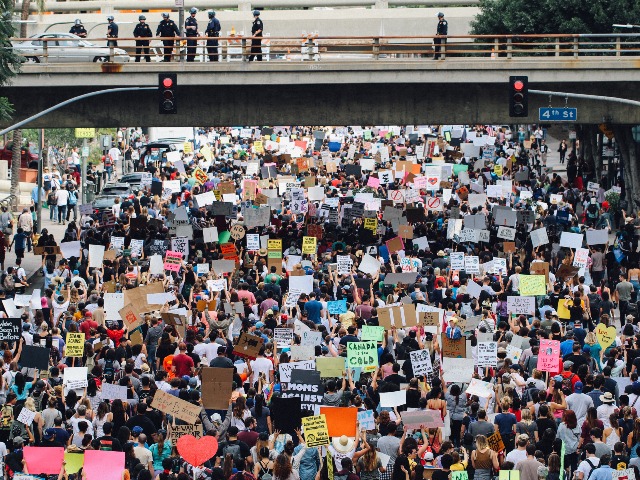Building civil religion from the ground up: how the study of religion can help us rebuild political participation in the wake of populism
| Date: | 31 October 2022 |
| Author: | Timothy Stacey |

Climate activism, climate denial, ‘Black Lives Matter’ and 'the Proud Boys’, transactivism and trans-scepticism; society has perhaps never seemed more divided. In this culture of deep distrust, when we refuse to give a platform to those we disagree with, let alone take their arguments in good faith, how can we possible address issues of common concern?
In my new book, Saving Liberalism from Itself: The Spirit of Political Participation, I take the populist reaction to liberalism in good faith. I acknowledge that liberalism has gutted the political culture of shared meaning and belonging. But I seek a way to restore these to the centre of political debate without compromising the liberal ideal of offering equal dignity to all, regardless of background and positionality.
Why liberalism fails
I argue that liberalism has failed on two counts primarily. First, in search of a rational politics that speaks to all people regardless of background and positionality, liberalism has lost touch with the spirit of political participation, that is, everything that inspires people to engage in a common project beyond the immediate material reward: myths of heroic deeds, rituals of collective engagement, the magic of taking action together, and the feeling of being part of a grand narrative that we inherit from our forebears and pass on to future generations. Second, by stressing that meaning is derived from a purely internal process of working out who you are and what you believe, liberalism has made it even harder for us to compromise. As a result, people are increasingly unlikely to see themselves as part of a common political project or make sacrifices for a greater good.
The search for old and new religions
Broadly speaking, two answers have been offered thus far, neither of which is satisfactory. The first comes from so-called post-liberals. Here, the argument is that that we need to restore the last grand narratives: from Christianity in the West to Hinduism in India. The problem with this approach is that if a religiously homogenous culture ever existed anywhere, which is doubtful, it cannot simply be reimposed today without seriously undermining people’s understanding of what makes life worth living. The second answer comes from civil religionists like Martha Nussbaum. Here, scholars seek to impose a religious framework on a preconceived set of values, such as freedom and equality. The risk of this approach is that, like post-liberals, scholars position themselves as guardians of a new political culture, developing a civil religion from an ivory tower that is supposed to work for people building solidarity on the ground.
Civil religion but not like we know it
Rather than imposing a new religious framework, my approach is to apply tools from the study of religion to illuminate the imaginaries of people building solidarity from the ground up, standing shoulder to shoulder to fight for a living wage. In Saving Liberalism, I explore the myths, rituals, magic and traditions of liberally oriented people as they navigate between their universal ideals and their need to work together with people who often do not share those ideals. The result is twofold. Firstly, the book offers a new theoretical way of understanding these core religious studies terms in light of their application to a broadly nonreligious population. Secondly, the book draws on religious studies theory to provide new insights about political motivation.
In Saving Liberalism, I do not claim to have found the basis of a new civil religion. But nor is that my intention. Instead, I hope to have provided serious groundwork for others that want to use tools from the study of religion to illuminate the imaginaries of people fighting good causes and to spread their lessons elsewhere. For example, I am now exploring how liberalism inhibits bold action on the climate and how myths, rituals, magic and traditions can reignite our collective imagination. In this manner, I hope I have provided insights for scholars and activists alike to borrow from and riff off as they try to build a better world.
About the author
Researcher at the Urban Futures Studio, Utrecht University. With a BA in Philosophy & Theology, a PhD in Sociology, and an interest in anthropology, art, and activism, Tim explores how imaginaries influence political action. He divides his time equally between building theory and planning interventions.

